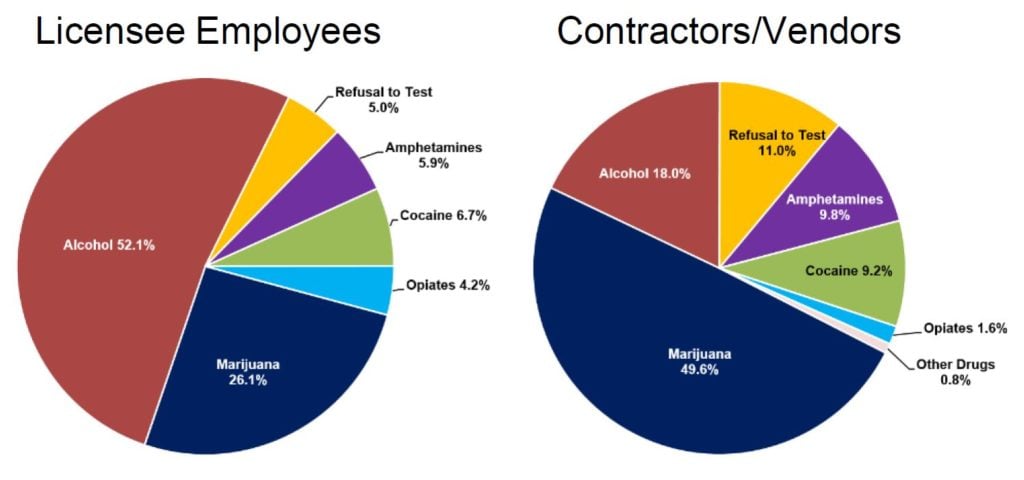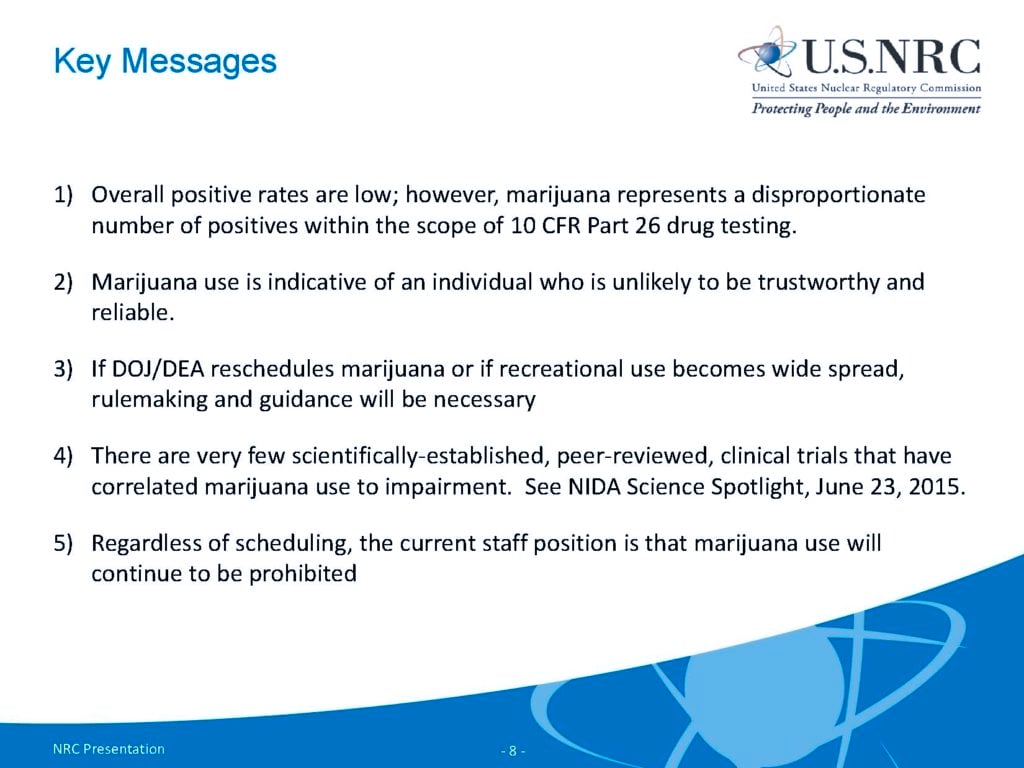The Nuclear Regulatory Commission (NRC) adopted regulations in the mid-1980s seeking to ensure that nuclear power plant workers are fit for duty. The NRC’s regulations contained provisions seeking to verify that workers were trustworthy and reliable as well as measures intended to prevent workers from being impaired on duty. The former measures included background checks before workers could gain access to the plant while the latter components included drug and alcohol testing.
The regulations require that nuclear plant owners test workers for marijuana and alcohol use at the time of hiring, randomly thereafter, and for cause when circumstances warrant it. In 2014, marijuana use was the #1 reason for positive drug and alcohol tests by contractors and vendors and was the #2 reasons for positive tests by nuclear plant employees. Positive tests for alcohol are the #1 reason for positive tests by employees and the #2 reason for positive tests by contractors and vendors. A positive test may not be a career killer, but it is often a career crimper.

Fig. 1 (Source: Nuclear Regulatory Commission)
Alcohol can be legally purchased and consumed in all 50 states. So, mere detection of having used alcohol will not result in a positive test. But detection of a blood alcohol concentration of 0.04 percent or higher yields a positive test. People have different metabolisms and alcoholic beverages come in different sizes, but that threshold is often equated to having consumed one alcoholic beverage within five hours of the test. Similar to the reason that states require motorists to not drive under the influence of alcohol (i.e., don’t drink and drive), the NRC’s regulations seek to control alcohol consumption by workers (i.e, don’t drink and operate nuclear plants.)
Unlike the reason for the alcohol controls, the NRC’s ban on marijuana use is not because it might make them more likely to make mistakes or otherwise impair their performance, thus reducing nuclear safety levels. The NRC banned marijuana use because at the time marijuana was an illegal substance in all 50 states and its criminal use meant that workers fell short of the trustworthiness and reliability standards in the fitness for duty regulation. Since the NRC adopted its regulation, 8 states have legalized recreational use of marijuana and another 12 states have decriminalized its use.

Fig. 2 (Source: NORML)
The NRC recognized that marijuana’s legalization creates potential problems with its fitness for duty regulation. If an individual uses marijuana in a state that has legalized or decriminalized its use but tests positive at a nuclear plant in a state where its use is not legal, is the individual sufficiently trustworthy and reliable? In the eyes of the NRC, the answer remains no.

Fig. 3 (Source: Nuclear Regulatory Commission)
The NRC conceded that no comparable scientific basis links marijuana use to performance impairment as existed when the alcohol limits were established. But the NRC continues to consider marijuana use as indicating one lacks the trustworthiness needed to work in a nuclear power plant.
The NRC is in a hard spot on this one. Revising its regulations to eliminate marijuana as a disqualifier for working in a nuclear power plant would likely spawn news reports about the agency permitting Reefer Madness at nuclear plants. But the country’s evolving mores are undermining the basis for the NRC’s regulation.
